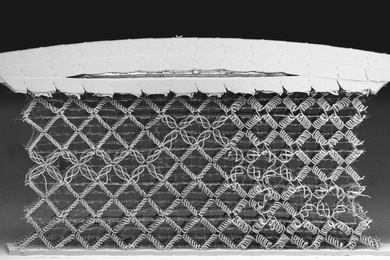Dr. H. Robert Horvitz, professor of biology and Howard Hughes Medical Institute Investigator, has received this year's V.D. Mattia Award from the Roche Institute of Molecular Biology.
He was cited for his experiments with microscopic worms, which have led to discoveries about the genetics of human biological development and insights into cancer, and also for his work in helping achieve a breakthrough in the understanding of Lou Gehrig's disease.
The Mattia Award, given for outstanding contributions to biomedical research, carries a cash prize of $10,000. It is named for the physician who, as president and chief executive officer of Hoffmann-La Roche Inc., played a key role in the founding of the Roche Institute in 1967. Eight previous winners of the award have later received the Nobel Prize.
Professor Horvitz accepted the award yesterday (November 2) at the Roche Institute, Hoffman-La Roche's basic research center.
In announcing the award, Roche Institute Director Dr. Hebert Weissbach said that Professor Horvitz has made "fundamental contributions to our understanding of the role of specific genes in the development of an organism. His work on nematodes-tiny worms-is a clear example of how research, on what some might consider an obscure organism, can yield valuable information that is relevant to other species, including man."
In March, Dr. Horvitz and Dr. Robert Brown, Jr., of Massachusetts General Hospital announced a breakthrough against amyotrophic lateral sclerosis (ALS), the disease that killed baseball star Lou Gehrig. They led a team of 30 scientists from 13 institutions that identified a gene associated with the inherited form of the disease. The discovery pointed directly to a possible cause of the disease and as a result, initial drug trials will soon begin.
A version of this article appeared in the November 3, 1993 issue of MIT Tech Talk (Volume 38, Number 12).





